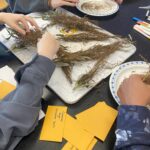
Fall Plant Sale: August 10, 10am-2pm
Explore the Compost Education Centre Teaching Gardens and Demonstration Site, with explorations of composting, native plants and pollinators, veggie gardens, aquaponics, and more. The tour offers inquiry-based education and applied learning, relating our gardens to the world surrounding the students.
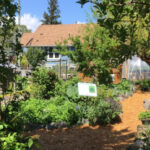
Discover worms and the benefits of composting! Students will learn about the compost cycle and gain an understanding of worm anatomy while holding Red Wriggler worms. Putting their new knowledge to work, students will create a worm bin together to keep in your class for continued learning. Option to harvest your bin in part 2 of our workshop.
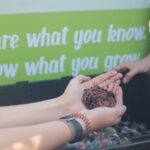
In this workshop students will dive into the world of soil. Hands-on, discovery-based activities encourage students to unearth the many things soil has to tell us and explore what it means to be a soil steward. Introduce your students to composting, soil ecology, erosion, conservation and more.
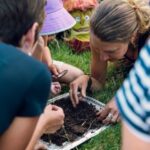
What is a pollinator? Why are bees so important? Learn about the importance of pollinators, explore little known facts about native bees and engage in hands on activity. Discover how to care for and protect native pollinators, and learn about their integral role in local ecosystems. This spring and summer workshop is jammed packed with new info and involves opportunity for lots of exploration.
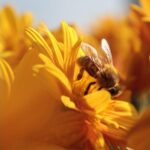
If your worm bin is starting to look like soil it may be time for a harvest! This follow up workshop revisits the compost recipe and worm anatomy through the exploration of the finished compost while removing worms. Students get the chance to solidify their knowledge on the compost cycle while uncovering plenty of new things about the food web in their compost bin.
*Note: Harvest workshops should be booked around 6 months after setting up the worm bin.
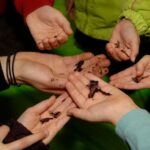
What is citizen science? How can we connect with the biodiversity in our neighbourhoods? In this workshop, students will conduct a biodiversity survey near their school, and learn how to publish the data they record using the iNaturalist platform. We will discuss the importance of citizen science as a tool for deepening our understanding of the world around us, as well as connecting with other nature enthusiasts and contributing to scientific research and stewardship.
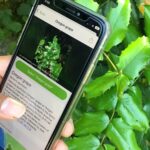
Why do seeds come in such different shapes and sizes? How do they know when to sprout? Why are many of them so nutritious? Find out in this workshop, where students will dissect beans to uncover their hidden anatomy, learn about seed adaptations by doing a slippery science experiment, collaboratively design their own seeds, and more!
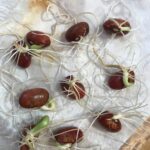
For grade 7-12. How can we save seeds, and why do we do it? This extremely hands on workshop provides students an opportunity to process seeds from a variety of plants, experiment with different seed saving techniques while learning about the importance of seed saving for our futures and food systems. Participants will end by learning to test germination rates, package and store dry seeds and finish the workshop with packaged seeds to plant next spring.
